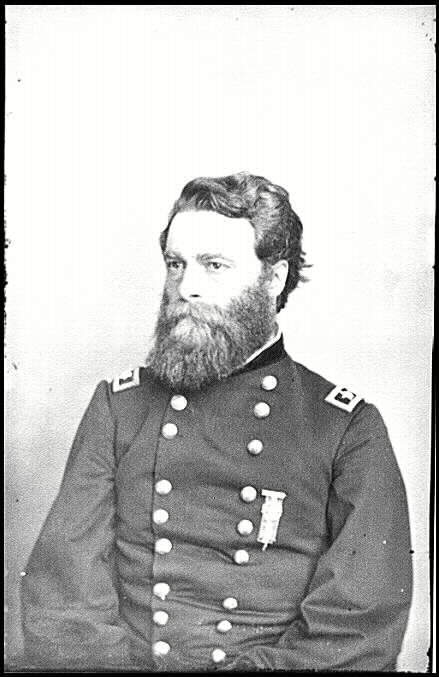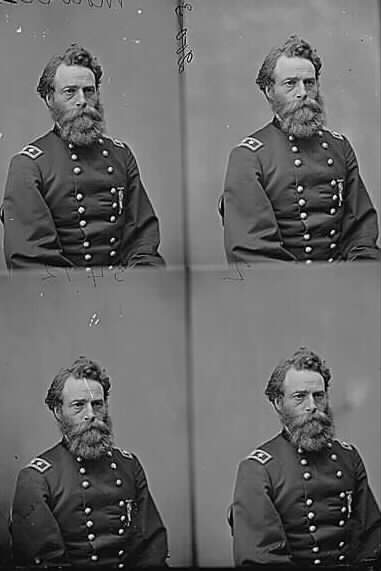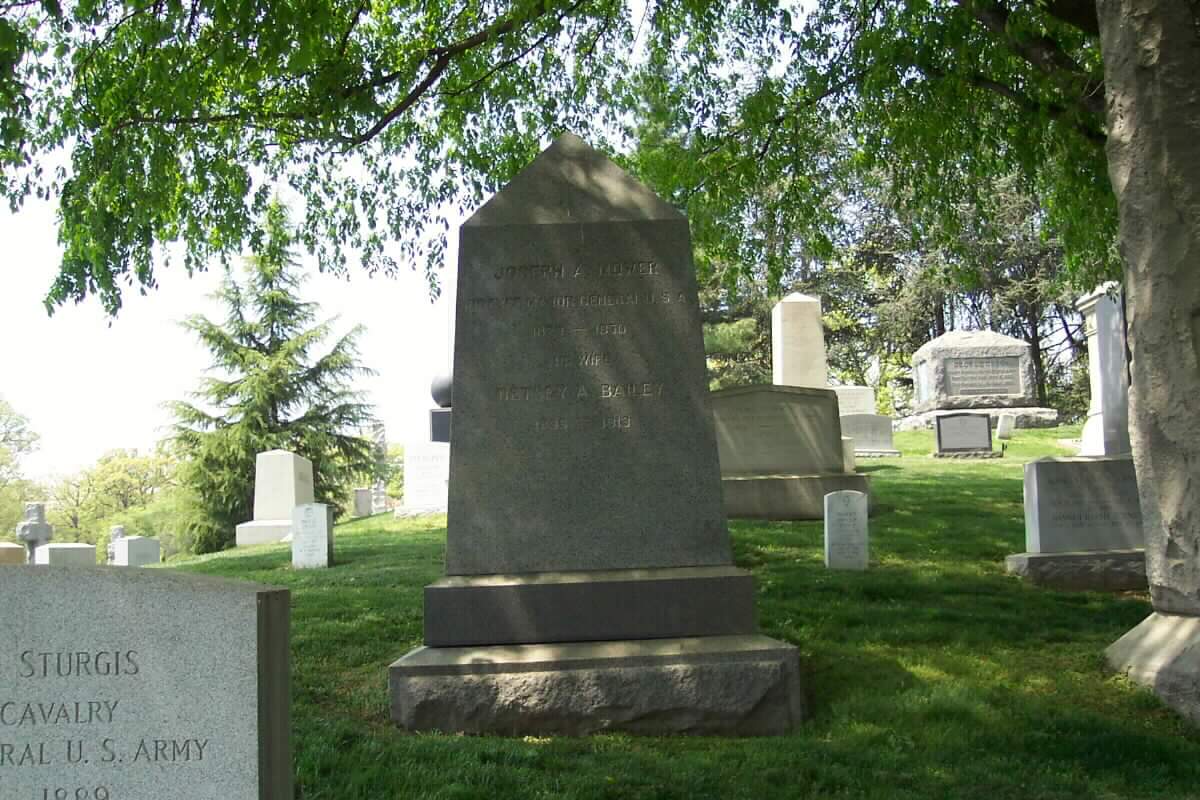
He then worked as carpenter for a brief time until he entered army during the Mexican War as a Privayte, serving until 1848. Seven years later Mower, who had always desired military career, was appt a Second Lieutenant of 1st United States Infantry.
During the Civil War made a magnificent record as a regimental, brigade, divisional, and corps commander successively. He was elected Colonel of the 11th Missouri (Union) Volunteer Infantry in May 1862 (a state in which he had served since the beginning of the war) he was promoted to Brigadier Generalon Mar 16, 1863, and to Major General on Aug 12, 1864. By end of the war he had been bnreveted for gallantry through all grades to that of Major General in the Regular service. In meantime, fought at the battle of Iuka and at Corinth where he was wounded, captured, escaped, and recaptured. Next he directed a brigade of William T. Sherman’s XV Corps in the Vicksburg Campaign. He accompanied Nathan P. Banks on the ill-fated campaign up the Red River and led the attacking column into Fort De Russy, and commanded the rear guard at Yellow Bayou during the retreat. Soon after he was given command of a Division, Sherman states that he was “the bravest young soldier we have.” At this time Sherman was 44, Mower 36.
Mower served with Sherman in Georgia and the Carolina Campaign after taking part in the latter’s “invasion of Missouri” in the early part of 1864. After joining Sherman in November 1864, during “The March to the Sea,” he commanded a Division; during the long march north from Savannah, which would terminate on Pennsylvania Avenue in Washington, D.C. , he had charge of the XX Corps, directing them with great distinction in Slocum’s Army of Georgia.
On the reorganization of the Regular Army in July 1866, Mower was given command of the newly authorized 39th Regiment of colored troops and was trans in 1869 to the 25th United States Infantry, another colored regiment.
Mower died of pneumonia, January 6, 1870 while commanding the Department of Louisiana. He was buried with fill military honors in Section 2, Grave 1041, Arlington National Cemetery.
His wife, Betsey A. Bailey Mower (1836-1913) is buried with him.
Michael Robert Patterson was born in Arlington and is the son of a former officer of the US Army. So it was no wonder that sooner or later his interests drew him to American history and especially to American military history. Many of his articles can be found on renowned portals like the New York Times, Washingtonpost or Wikipedia.
Reviewed by: Michael Howard


